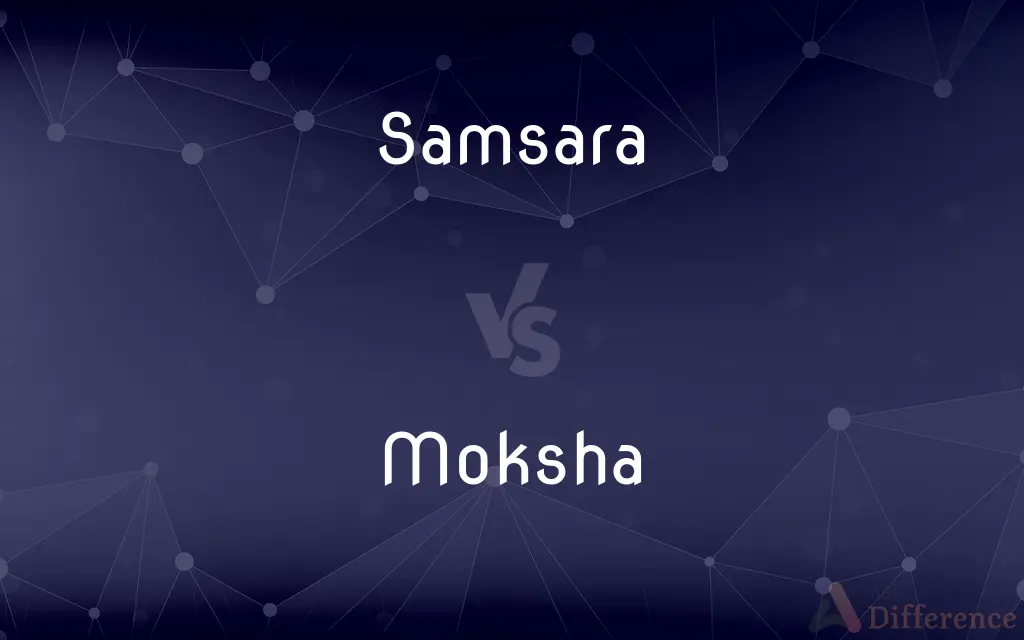Samsara vs. Moksha — What's the Difference?

Difference Between Samsara and Moksha
ADVERTISEMENT
Compare with Definitions
Samsara
The eternal cycle of birth, suffering, death, and rebirth.
Moksha
Moksha (; Sanskrit: मोक्ष, mokṣa), also called vimoksha, vimukti and mukti, is a term in Hinduism, Buddhism, Jainism and Sikhism for various forms of emancipation, enlightenment, liberation, and release. In its soteriological and eschatological senses, it refers to freedom from saṃsāra, the cycle of death and rebirth.
Samsara
In Jainism, Hinduism, Buddhism, and some other eastern religions, the ongoing cycle of birth, death, and rebirth endured by human beings and all other mortal beings, and from which release is obtained by achieving the highest enlightenment.
Moksha
In Indian philosophy and theology, the final liberation of the soul or consciousness from samsara and the bringing to an end of all the suffering involved in being subject to the cycle of reincarnation.
Samsara
(Hinduism and Buddhism) the endless cycle of birth and suffering and death and rebirth
ADVERTISEMENT
Share Your Discovery

Previous Comparison
Concealer vs. Contour
Next Comparison
Tripe vs. Intestine














































